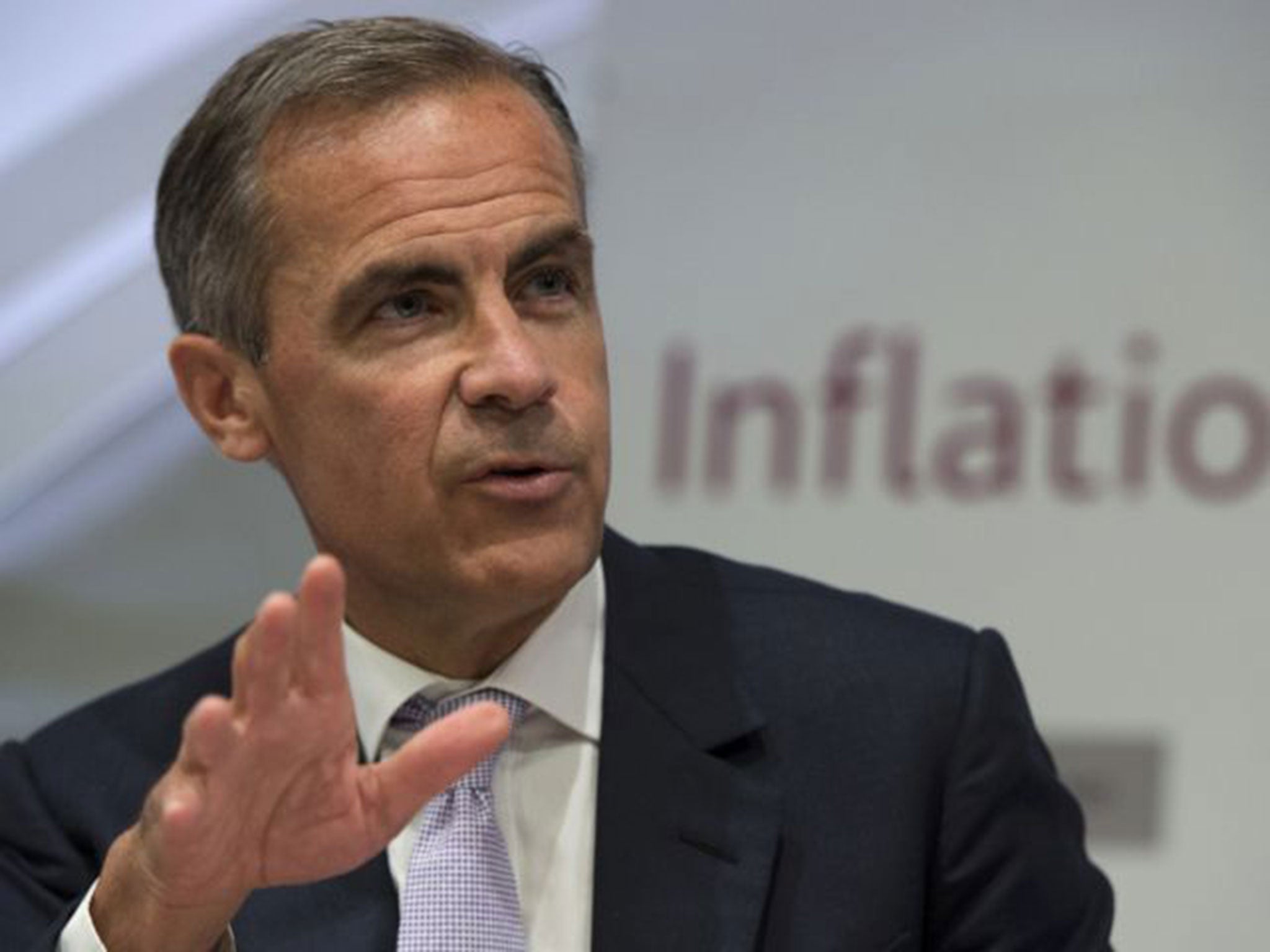The Bank of England signalled to financial markets that there is unlikely to be an interest rate rise until well into next year.
In an unexpectedly dovish message, the central bank said the fall in the oil price and the strength of the pound would keep inflation “muted” over the next year, even as wages pick up and the economy continues to grow.
On what was dubbed “super Thursday” by the City because of the release of large amounts of rate-sensitive information by Threadneedle Street, it emerged that only one member of the Bank’s Monetary Policy Committee, Ian McCafferty, voted to put up rates from their historic floor of 0.5 per cent. The City had expected at least two members of the nine- person MPC to vote for an immediate tightening of monetary policy.
The pound instantly dropped almost 1 per cent against the dollar to $1.547 and 10-year gilt yields fell 62 basis points to 1.92 per cent as traders pushed back their expectations of the first rate rise further into the second quarter of 2016. Some Square Mile analysts had previously speculated that the strengthening economy could prompt the Bank’s first rate hike since 2009 before the end of the year.
Mark Carney, the Bank’s Governor, said: “The likely timing of the first Bank rate increase is drawing closer. However, the exact timing ... cannot be predicted in advance; it will be the product of economic developments and prospects.” And in an echo of the language of the chair of the US Federal Reserve, Janet Yellen, he added: “In short, it will be data dependent”.
The central bank predicted that consumer price inflation this year would come in at 0.3 per cent, down from its 0.6 per cent expectation in May. Inflation was zero in June and the Bank’s new forecast suggests it could well turn negative again over the coming months.
“The falls in energy prices of the past few months will continue to bear down on inflation at least until the middle of next year,” the Bank said. The price of a barrel of Brent crude is now around 12 per cent lower than three months ago. The Bank added that the strength of sterling in trade-weighted terms – which has risen by 3.5 per cent since May – “will continue to push down on inflation for some time to come”. Nevertheless, inflation in two years’ time is still seen as returning to the official 2 per cent target.
The Bank thinks growth in the third quarter of the year will come in at 0.7 per cent, and it revised up its estimate for growth over 2015 as a whole from 2.5 to 2.8 per cent.
It sees average pay growing by 3 per cent this year, up from 2.5 per cent previously. Business investment is also seen rising by 4.75 per cent, up from the earlier 2.5 per cent estimate.
But the Bank revised down its employment growth estimates for this year, resulting in a stronger productivity performance in 2015 than previously expected by Threadneedle Street.
The Bank said the central estimate of the MPC was that there remains slack of 0.5 per cent of GDP in the economy, unchanged since its report in May, although it stressed that there was a “range of views” on this subject on the committee. The minutes of the meeting — which were released alongside the decision itself and the quarterly Inflation Report for the first time — showed that Mr McCafferty thought “demand and wage pressures were likely to be greater and the margin of spare capacity smaller”. He wanted to put rates up to 0.75 per cent. Analysts had expected him to be joined by Martin Weale, another who has voted for rate rises in the past.
“Having moved in a decidedly hawkish direction over the past few months, the MPC surprised by delivering a relatively dovish Inflation Report and minutes on ‘super Thursday’. That there was only one dissenter was a little surprising, while there was no sense that the majority of the committee are remotely close to voting for higher rates,” said Andrew Goodwin of Oxford Economics.
Subscribe to Independent Premium to bookmark this article
Want to bookmark your favourite articles and stories to read or reference later? Start your Independent Premium subscription today.


Join our commenting forum
Join thought-provoking conversations, follow other Independent readers and see their replies